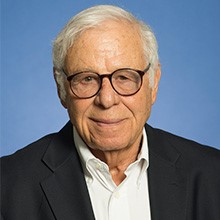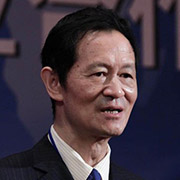On June 24, with the participation of hundreds of senior officials across the two governments and more than 200 outcomes, the seventh round of China-U.S. Strategic and Economic Dialogue (S&ED) and the sixth China-U.S. High-Level Consultation on People-to-People Exchange drew to a successful close in Washington, D.C. In a joint press release, the two sides vowed to “cooperate closely in preparing for a productive state visit by President Xi Jinping to the United States in September.” The depth, breadth and fruitfulness of the dialogue was unprecedented and somehow unexpected to some observers who are used to reading about disagreement and even tensions between the two countries in the press.
The gap between a spreading negative perception of China-U.S. relations and the often ignored mutually beneficial nature of the relationship reflects a long-existing paradox that the relationship is usually talked about in a more positive sense by the Chinese side than by the U.S. government and still less so by the media. Moreover, public impressions tend to underestimate the real strength and potential of the relationship. This is above all the result of the absence of strategic mutual trust.
In our globalized world, China and the U.S. have a high stake in each other’s success. They have one of the world’s largest trading relationships at US$550 billion per year. Two-way investment has hit US$110 billion and continues to soar. Four and a half million visitors travel between the two countries annually. Every 17 minutes, a flight between China and America takes off or lands. Many box-office hits from Hollywood are just as popular in China as they are in North America. China has even surpassed the United States as the biggest market for Apple products. The two sides are working together on regional and global issues like climate change. It is win-win partnership, not rivalry, that defines the relationship, which is not on a collision course. As the global order undergoes a profound shift, China and the U.S. have a responsibility to their own peoples and the world to pursue a stable and healthy relationship. People are encouraged by the latest round of the S&ED because it represents exactly where the relations should and will be.
Chinese Foreign Minister Wang Yi made the point recently that strategic trust holds the key to a strong and durable China-U.S. relationship. Trust inspires positive expectations, with which major issues can become minor ones, whereas the absence of trust would only invite problems. That is why China is fully committed to working with the U.S. on the trust issue.
The academic communities in both countries have a vital role to play in building such badly needed trust. Confucius said, “A wise man cannot be misled.” It is important for experts to be broad-minded, incisive and not guided by emotions, because their words can have a direct impact on public opinion and policymakers. That is why the downbeat rhetoric uttered by some big names on China-U.S. relations in the past few months has generated particular concern among the public.
The news media plays a significant role in China-U.S. ties as well. My friends who work in the American news industry said they too see a serious need for more interactions between the media of the two countries. Despite the overwhelming increase in China-related reports, knowledge about China remains inadequate, which more often than not puts things in a wrong perspective.
We have been reminded by our American friends that as the U.S. enters the campaign season, rhetoric on China will only get more aggressive, making the domestic environment even harsher for the growth of bilateral relations. We are fully aware what election politics could mean for this country, but we still hope that U.S. political leaders will bear in mind the importance of having a sound relationship with China in the long run and do nothing to undercut the fragile trust so that we can together cultivate a healthy and stable China-U.S. relationship.


